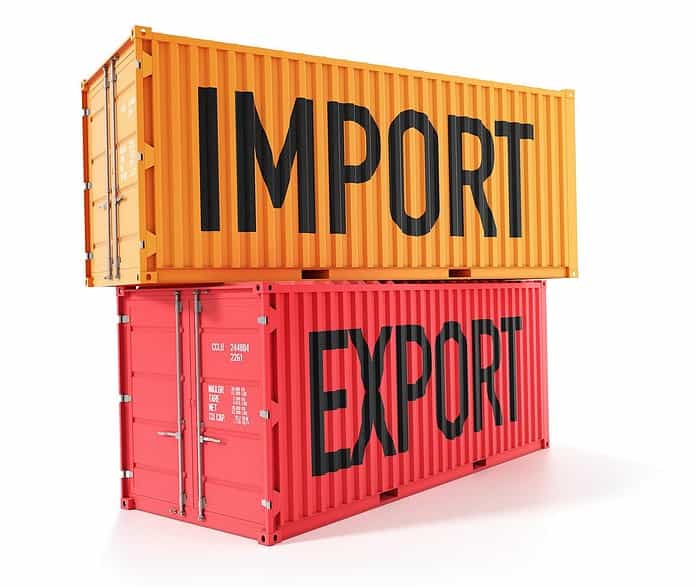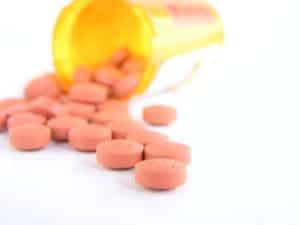Last Updated on October 6, 2024 by The Health Master
Pharma Industry
The Southern Gujarat Chamber of Commerce and Industry (SGCCI) orchestrated a remarkable event in Surat, where chemical and pharma industry leaders, along with business owners, committed to enhancing exports by a staggering INR 17,593 crore.
This collective endeavor aligns with the government’s ambitious plan to introduce a INR 14 lakh crore production-linked incentive (PLI) scheme, accompanied by substantial reforms in laws and policies.
Government’s Vision for Growth in Pharma Industry
The Union Minister for Health and Family Welfare, Chemicals, and Fertilizers, Mansukh Mandaviya, addressed the gathering of prominent business figures.
He emphasized the government’s commitment to realizing this vision for growth for the pharma industry, which includes the establishment of medical parks and bulk drug parks.
Industry-Wide Commitment
Highlighting the significance of unity among different sectors, Vaghasia, a key figure in the event, declared, “Today, chemical and pharmaceutical industry leaders have pledged to increase exports by INR 17,593 crore.”
“In future events, sectors such as textiles, diamonds, gems, and jewelry, solar energy, information technology, engineering, and defense products will also join these collaborative efforts.”
Specialized Zones for Chemical Industry
Mandaviya urged industry leaders to identify suitable locations and assess their valuation to facilitate the development of a dedicated chemical zone in South Gujarat.
He proposed the creation of a special purpose vehicle for this purpose, with the government becoming a strategic partner.
Subsequently, the government might consider divesting its equity in the venture. This innovative model is currently being explored within the chemical industry.
Government’s Economic Targets
SGCCI President Ramesh Vaghasia reiterated Prime Minister Narendra Modi’s ambitious vision of elevating India to a $5 trillion economy and boosting exports to $1 trillion by 2027.
SGCCI is actively involved in pursuing various initiatives to contribute to the realization of these formidable targets.
Addressing Industry Concerns
During the event, business and industry leaders had the opportunity to express their concerns on several critical issues, including:
- Anti-dumping Duty by China: Participants voiced apprehensions regarding the impact of anti-dumping duties imposed by China.
- Subsidy Schemes: The event provided a platform for industry leaders to discuss their needs and expectations concerning subsidy schemes for various sectors.
- Anti-dumping Duty on Chemical Imports: Concerns were raised about the implications of anti-dumping duties on chemical imports.
- Business with Africa in Indian Rupees: The issue of conducting business with Africa in Indian rupees was also brought to the forefront.
SGCCI systematically gathered these issues via an online platform, and during the event, Minister Mandaviya was presented with a few of them.
The government’s receptiveness to these concerns signifies a collaborative approach to addressing the challenges faced by the chemical and pharmaceutical industries in Surat.
This commitment to dialogue and action further reinforces the partnership between the government and the business community in achieving economic growth and export targets.
FAQs on drug exports from India:
1. What is drug export?
Drug export refers to the international sale and shipment of pharmaceutical products from one country to another for various purposes, including medical use, research, and commercial distribution.
2. Can all drugs be exported without restrictions?
No, not all drugs can be exported freely. Some drugs may be subject to export restrictions or require special permits due to their nature, potential for abuse, or international agreements.
3. Are there specific labeling requirements for exported drugs?
Yes, exported drugs usually need to have clear and compliant labeling that meets the requirements of both the exporting and importing countries. This includes information on ingredients, dosage, and safety warnings.
4. What documents are needed for drug export?
Commonly required export documents include a Certificate of Analysis, a Certificate of Origin, a Bill of Lading, a Packing List, and the necessary licenses or permits.
5. How are drug quality and safety ensured during export?
Quality and safety are maintained through adherence to Good Manufacturing Practices (GMP) and compliance with international quality standards. Regular inspections and audits are conducted to ensure product integrity.
6. Can pharmaceutical companies export experimental drugs for clinical trials?
Yes, pharmaceutical companies can export experimental drugs for clinical trials, but this process is highly regulated and requires approval from regulatory authorities.
7. Are there export incentives for drug manufacturers?
Some countries may offer export incentives, tax benefits, or subsidies to pharmaceutical companies to promote drug exports and boost their competitiveness in the global market.
8. What are the key regulations governing drug exports from India?
Drug exports from India are primarily regulated by the Central Drug Standard Control Organization (CDSCO) and the Directorate General of Foreign Trade (DGFT).
9. Are there specific licensing requirements for exporting pharmaceuticals from India?
Yes, pharmaceutical exporters in India typically need to obtain an Import-Export Code (IEC) from the DGFT. Additionally, specific licenses and permits may be required for certain types of drugs or destinations.
10. Can Indian pharmaceutical companies export to the United States and the European Union (EU)?
Yes, Indian pharmaceutical companies can export to the U.S. and EU markets. However, they must comply with stringent regulatory requirements, including approvals from the U.S. Food and Drug Administration (FDA) and the European Medicines Agency (EMA).
11. What is the role of the Export Promotion Council for Pharmaceuticals (Pharmexcil)?
Pharmexcil is an organization that promotes and facilitates pharmaceutical exports from India. It provides various services and supports Indian pharmaceutical exporters.
12. Are there tax incentives or benefits for pharmaceutical exporters in India?
India offers various export incentives and tax benefits to pharmaceutical companies to encourage drug exports. These incentives can include the Duty Drawback Scheme and the Export Promotion Capital Goods (EPCG) Scheme.
Please note that drug export regulations may change over time, so it’s crucial for exporters to consult with relevant authorities and industry experts to ensure compliance with the latest requirements and standards.
Disclaimer: This article contains information derived from the source mentioned below. Our team utilized an AI language model to rewrite and present the news or article in a unique format.
Drug recall: Digoxin Tablets recalled due to label mix-up
Medical drugs found in groundwater of pharma hub: Hyderabad
Pharmaceutical Manufacturing Standards in India: A Focus on GMP Compliance
Blood Centre under Scrutiny: HIV-Positive Blood units issued
USFDA approval issued for Mycophenolate Mofetil for Oral Suspension
Serious violations uncovered during Inspection of Medical Stores
Anil Mittal promoted as Registrar cum Secretary at the PCI
USFDA approval granted for Topiramate ER Capsules











